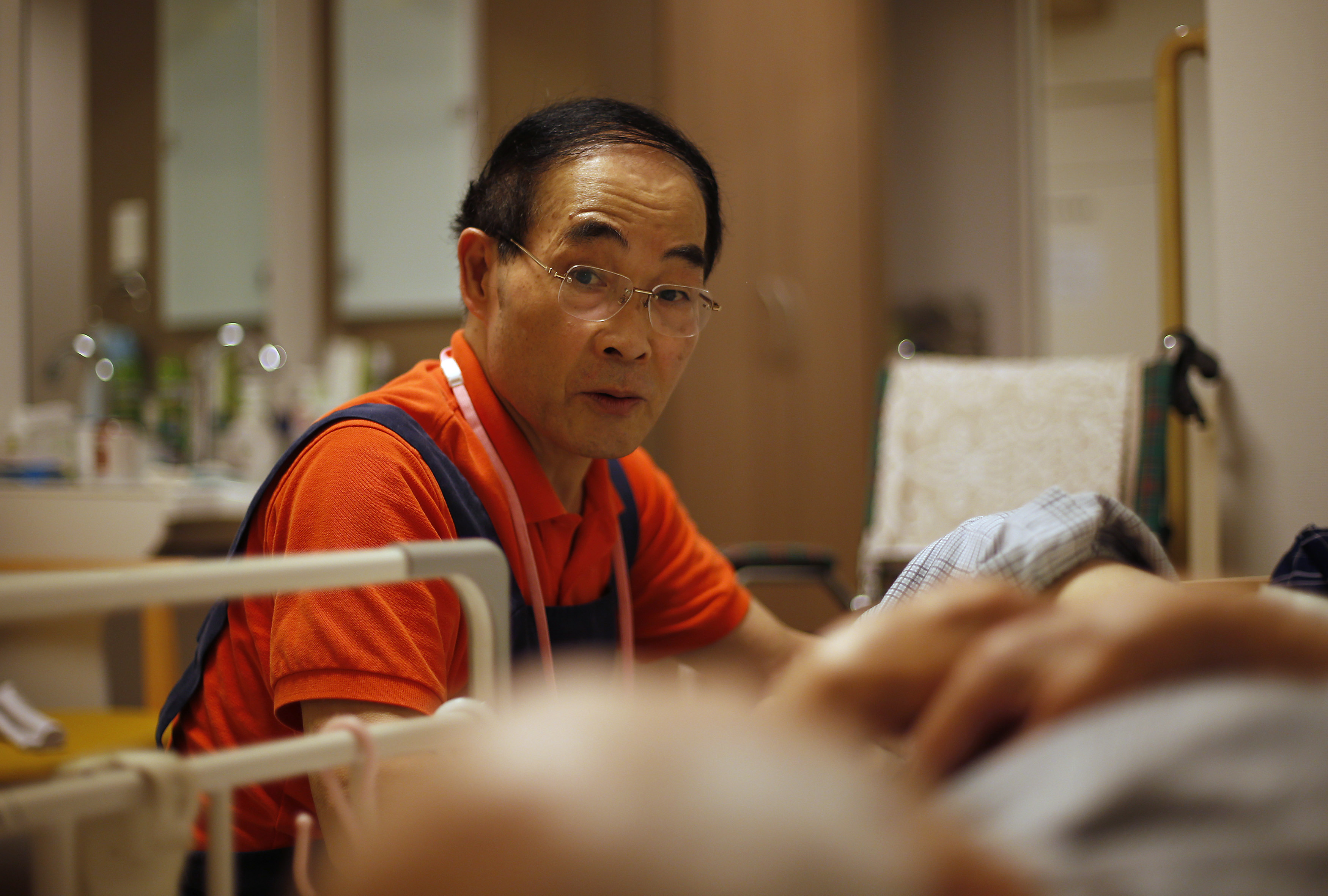Hiroshi Suzuki had a fulfilling career in which he traveled the world as an engineer. Then, at age 65, he retired. That didn't last long. For the past seven years Suzuki, 72, has been a nursing aide in the Tokyo area, and says he's years away from true retirement.
Economists say if Japan wants to alleviate its worsening labor shortage, it needs a whole lot more people like Suzuki, who is atypical by working into his 70s. Though it boasts the world's oldest population, Japan does an inadequate job of employing healthy seniors, they say. The reasons: company policies, work culture and a history of rigid seniority rules that work against older employees, providing a cautionary tale to aging economies, including those in Europe and the U.S.
"People in their 70s can still work. There are still so many things you can do as long as you are healthy," said Suzuki, who was a designer and engineer for an electric-furnace manufacturer and now works at a nursing home run by Care 21 Co., one of the few Japanese companies that have abolished a mandatory retirement age. "There's no need to think about retiring until you turn 80."



